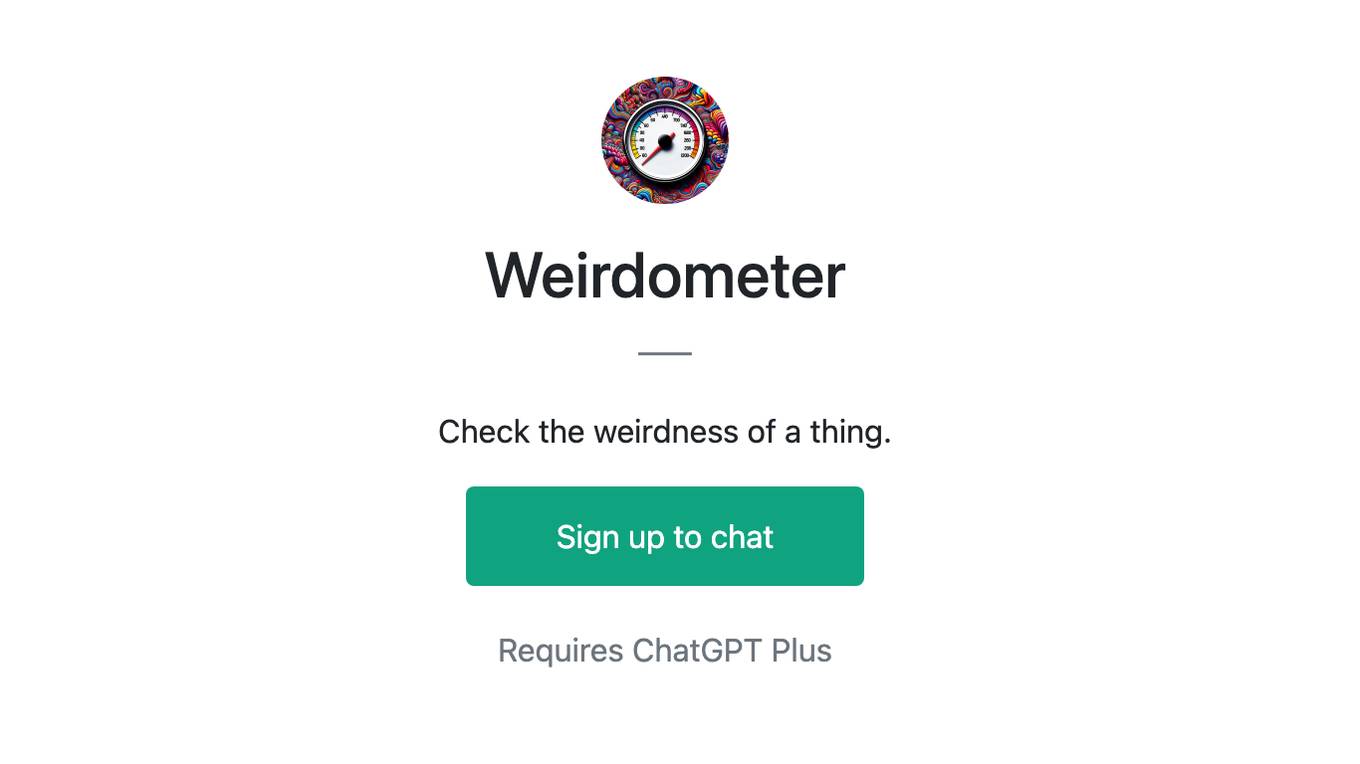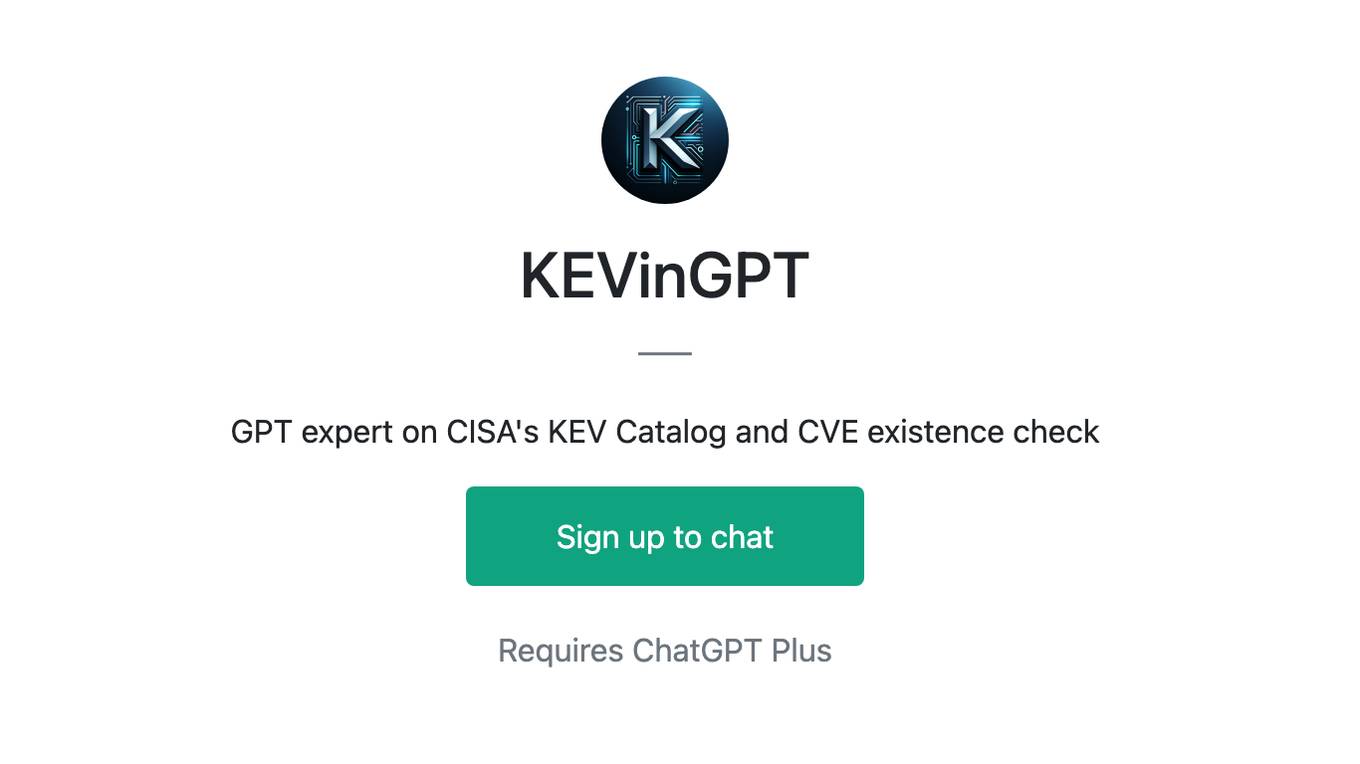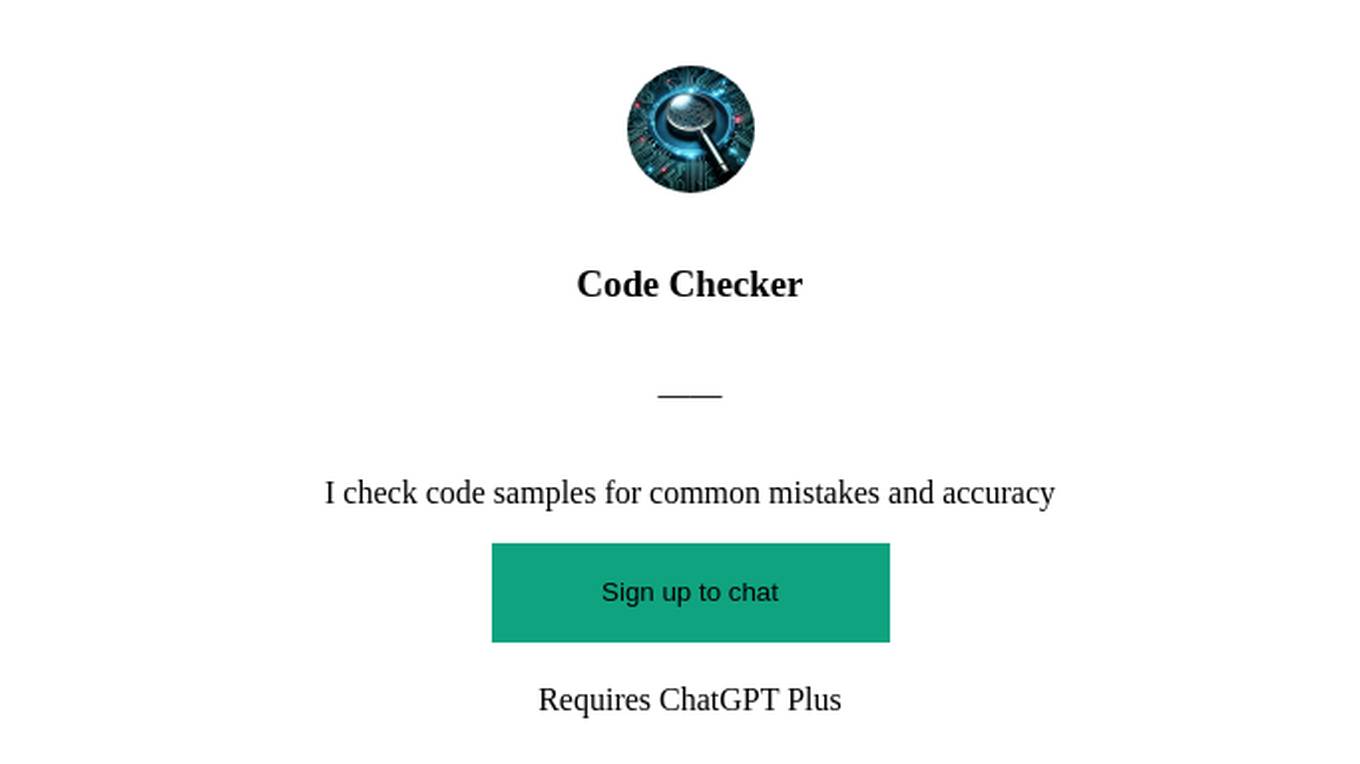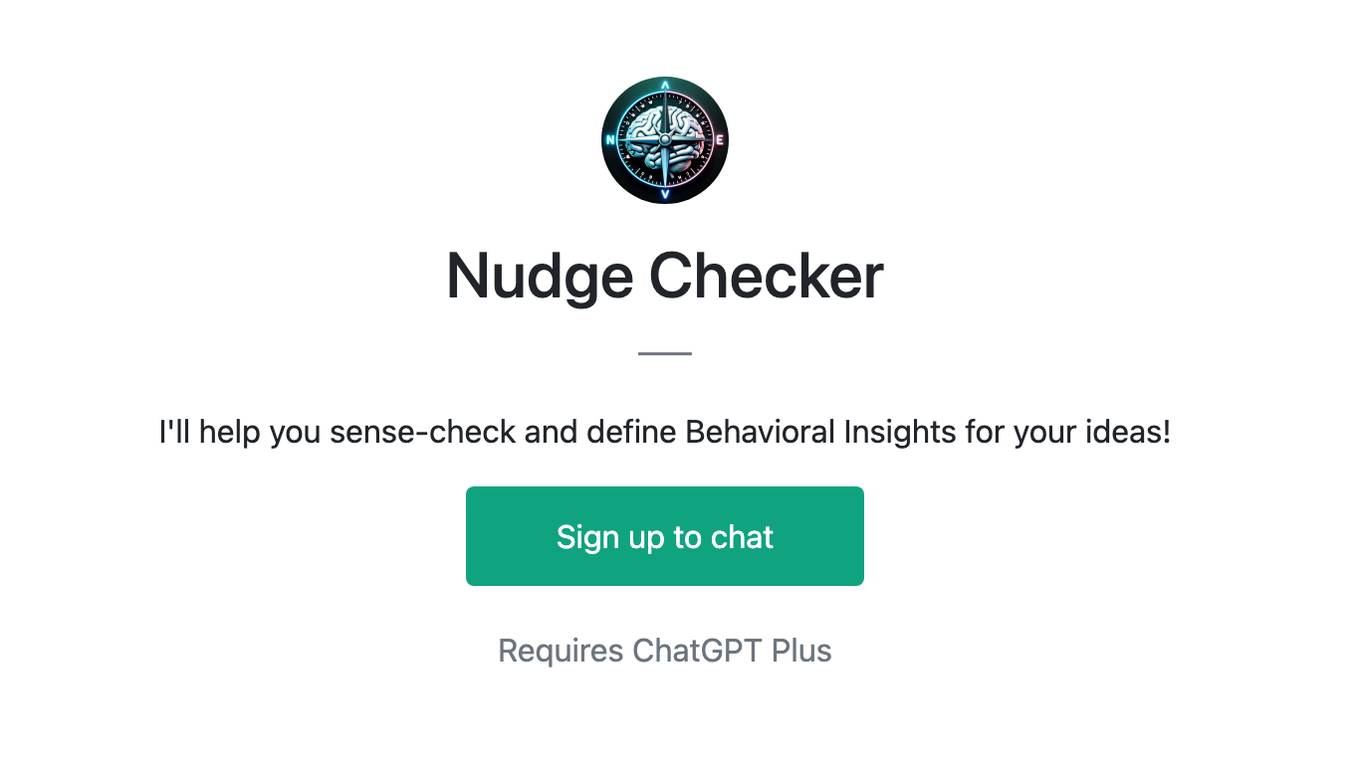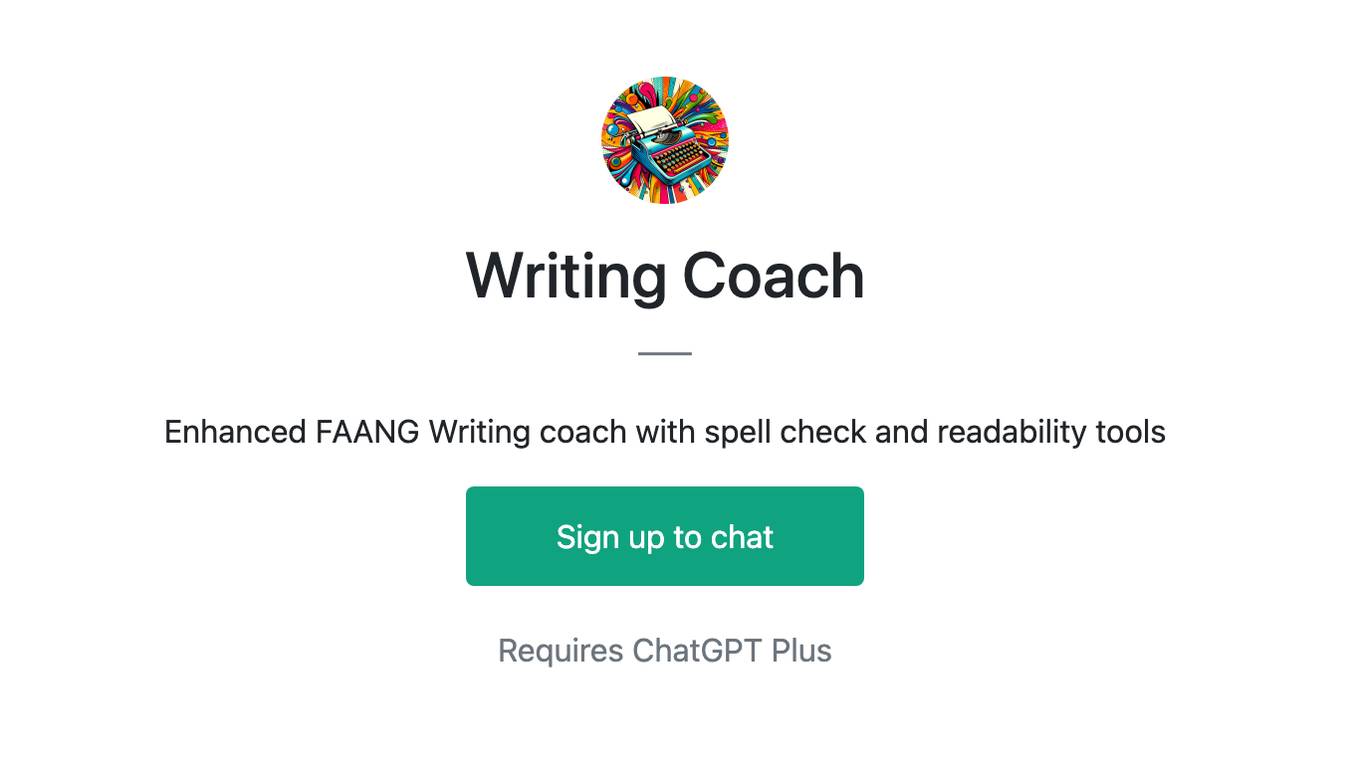Best AI tools for< Check Face Symmetry >
20 - AI tool Sites
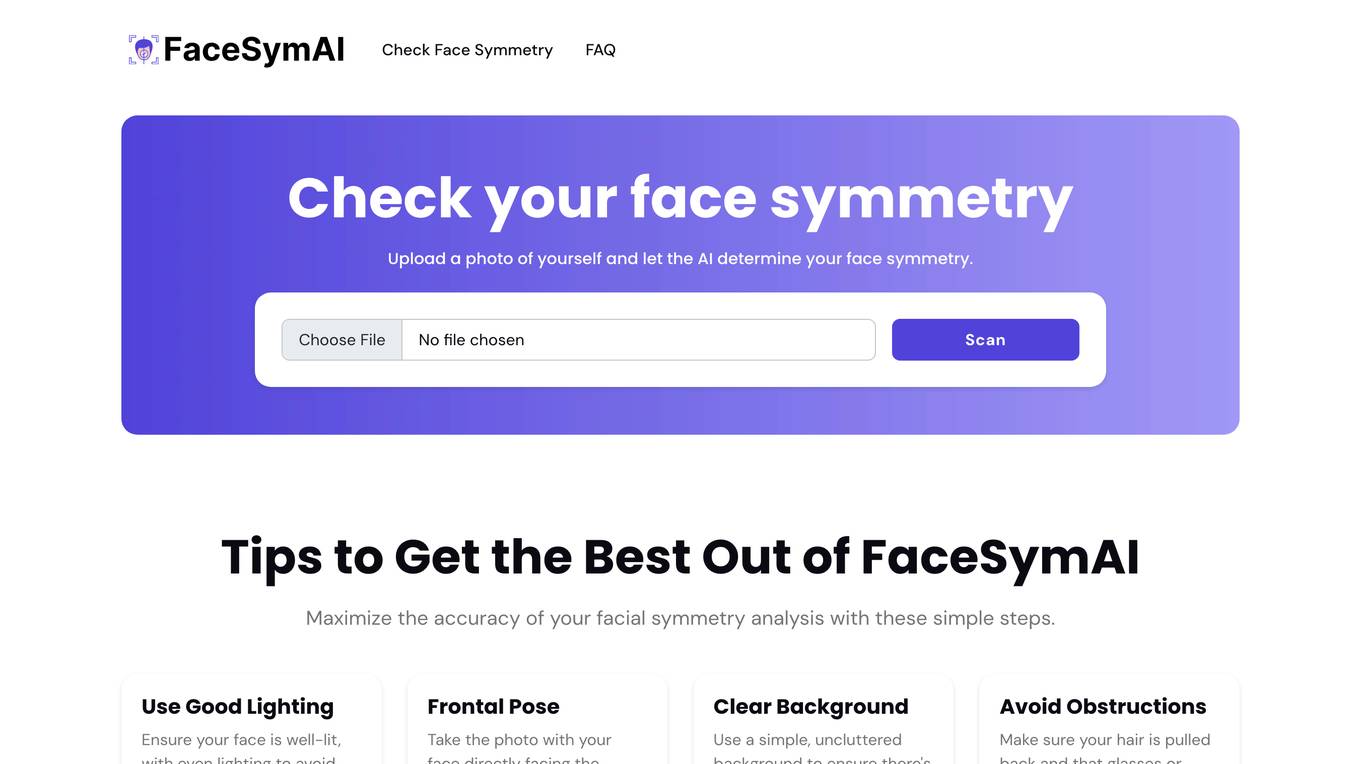
FaceSymAI
FaceSymAI is an online tool that utilizes advanced AI algorithms to analyze and determine the symmetry of your face. By uploading a photo, the AI examines your facial features, including the eyes, nose, mouth, and overall structure, to provide an accurate assessment of your facial symmetry. The analysis is based on mathematical and statistical methods, ensuring reliable and precise results. FaceSymAI is designed to be user-friendly and accessible, offering a free service to everyone. The uploaded photos are treated with utmost confidentiality and are not stored or used for any other purpose, ensuring your privacy is respected.
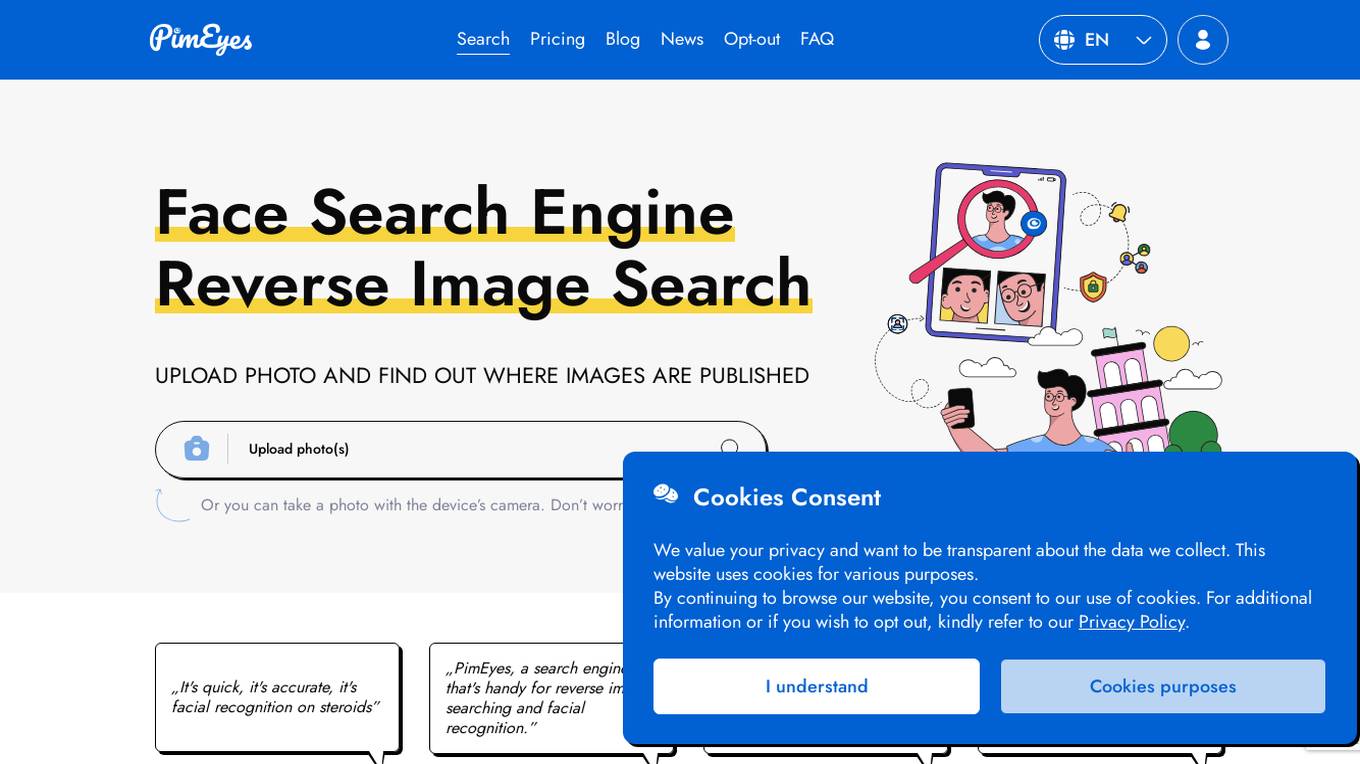
PimEyes
PimEyes is an online face search engine that uses face recognition technology to find pictures containing given faces. It is a great tool to audit copyright infringement, protect your privacy, and find people.
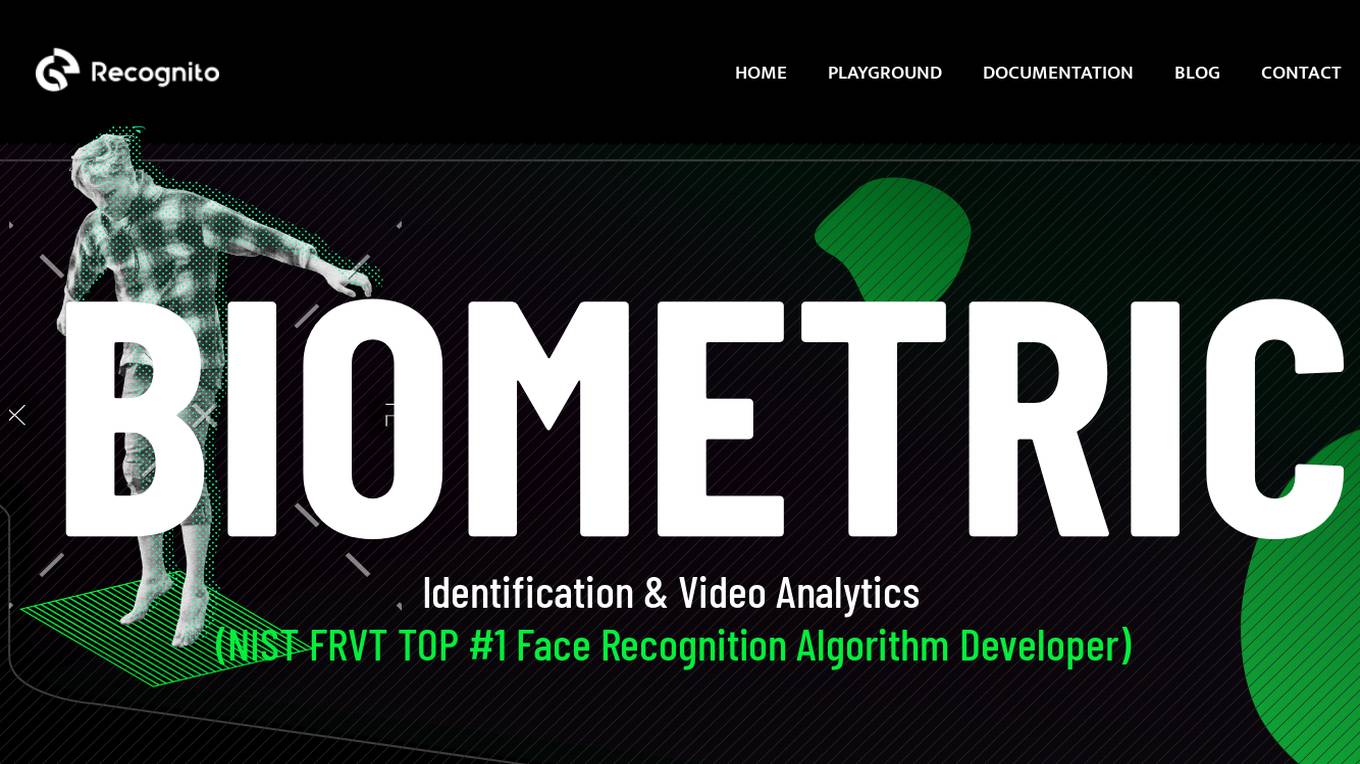
Recognito
Recognito is a leading facial recognition technology provider, offering the NIST FRVT Top 1 Face Recognition Algorithm. Their high-performance biometric technology is used by police forces and security services to enhance public safety, manage individual movements, and improve audience analytics for businesses. Recognito's software goes beyond object detection to provide detailed user role descriptions and develop user flows. The application enables rapid face and body attribute recognition, video analytics, and artificial intelligence analysis. With a focus on security, living, and business improvements, Recognito helps create safer and more prosperous cities.
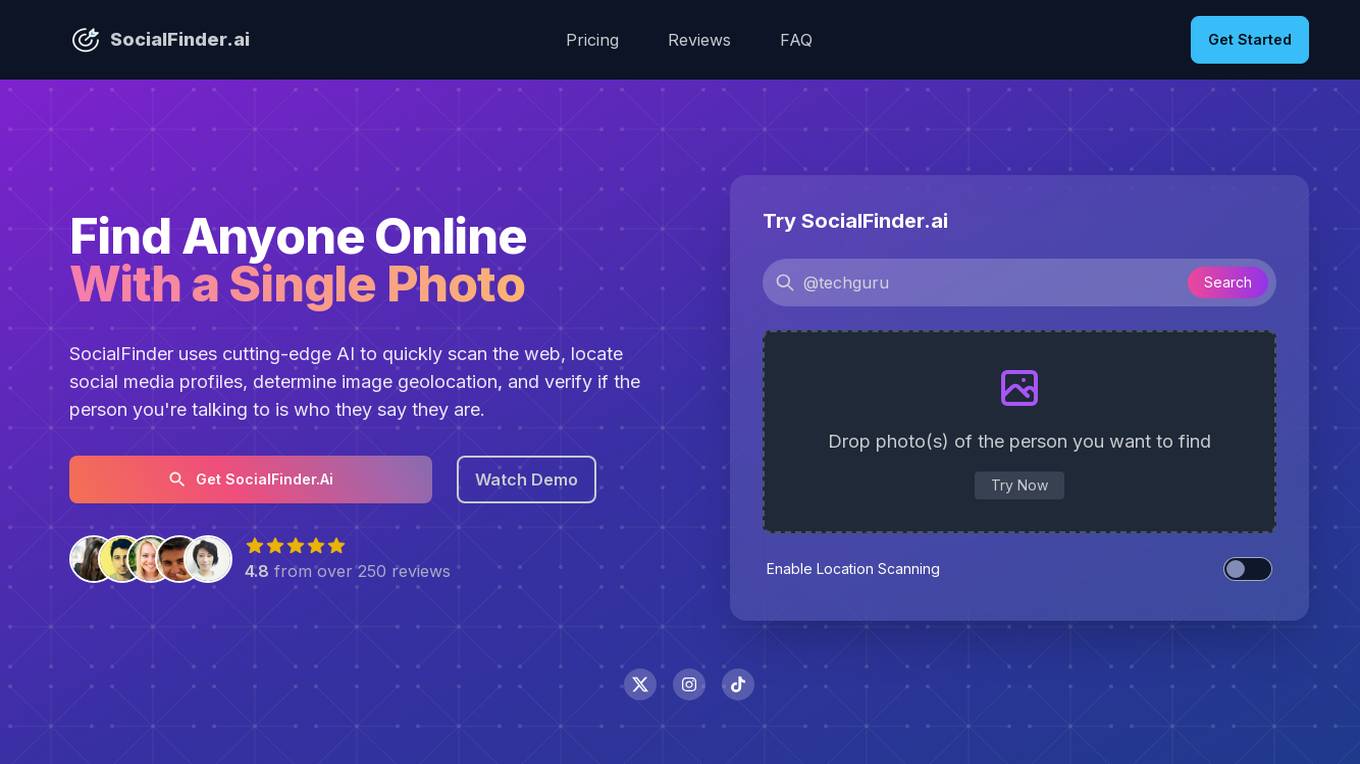
SocialFinder.ai
SocialFinder.ai is an AI-powered tool that enables users to find anyone online with a single photo. The tool uses cutting-edge AI technology to scan the web, locate social media profiles, determine image geolocation, and verify the identity of individuals. It helps users quickly and effectively find someone's digital footprint, making it a valuable resource for various fields, including investigations, background checks, and event planning.

Bibit AI
Bibit AI is a real estate marketing AI designed to enhance the efficiency and effectiveness of real estate marketing and sales. It can help create listings, descriptions, and property content, and offers a host of other features. Bibit AI is the world's first AI for Real Estate. We are transforming the real estate industry by boosting efficiency and simplifying tasks like listing creation and content generation.
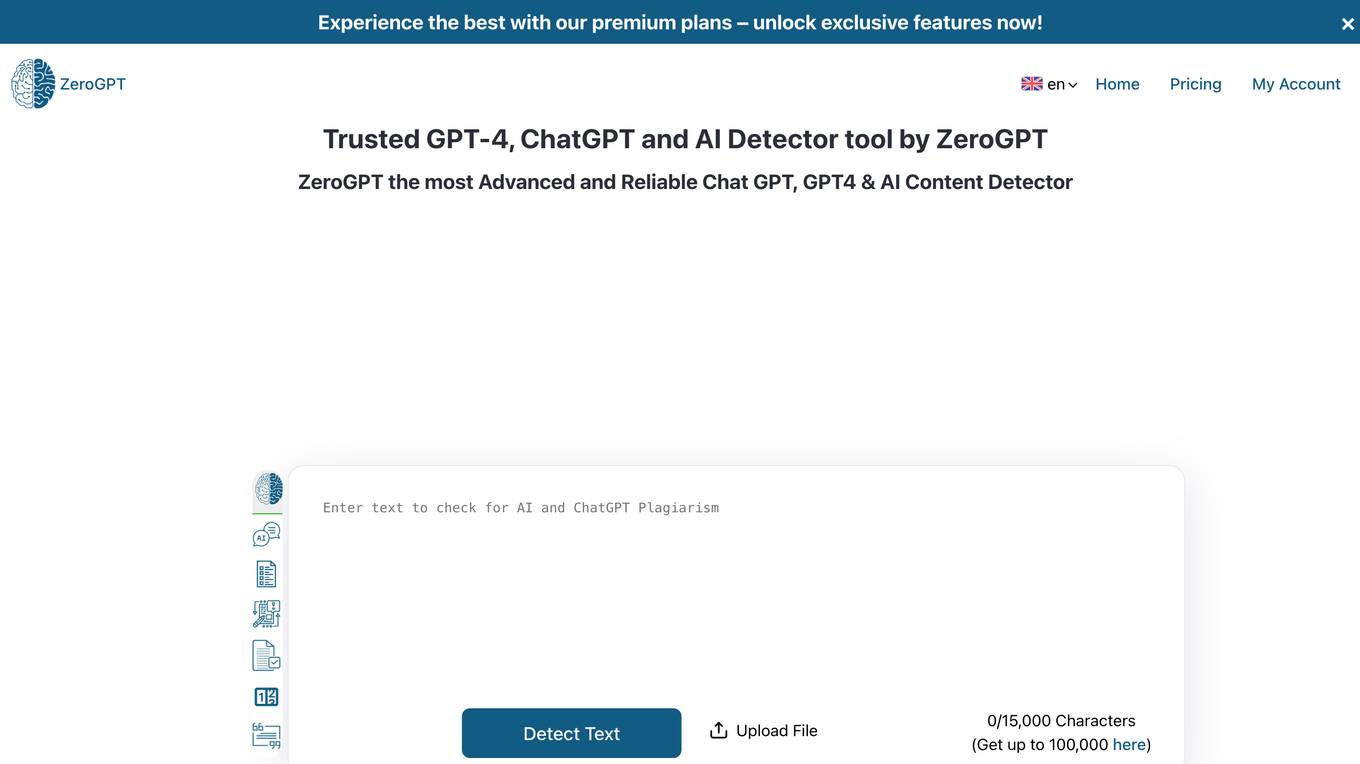
ZeroGPT
ZeroGPT is a comprehensive AI detection tool that helps users identify AI-generated content. It offers a range of features, including sentence highlighting, batch file upload, high accuracy, and support for multiple languages. ZeroGPT's DeepAnalyse™ Technology employs a multi-stage methodology to analyze text and determine its origin. The tool is designed to minimize false positives and negatives, providing users with reliable results. ZeroGPT also offers a user-friendly API for organizations, enabling them to integrate the tool into their systems.
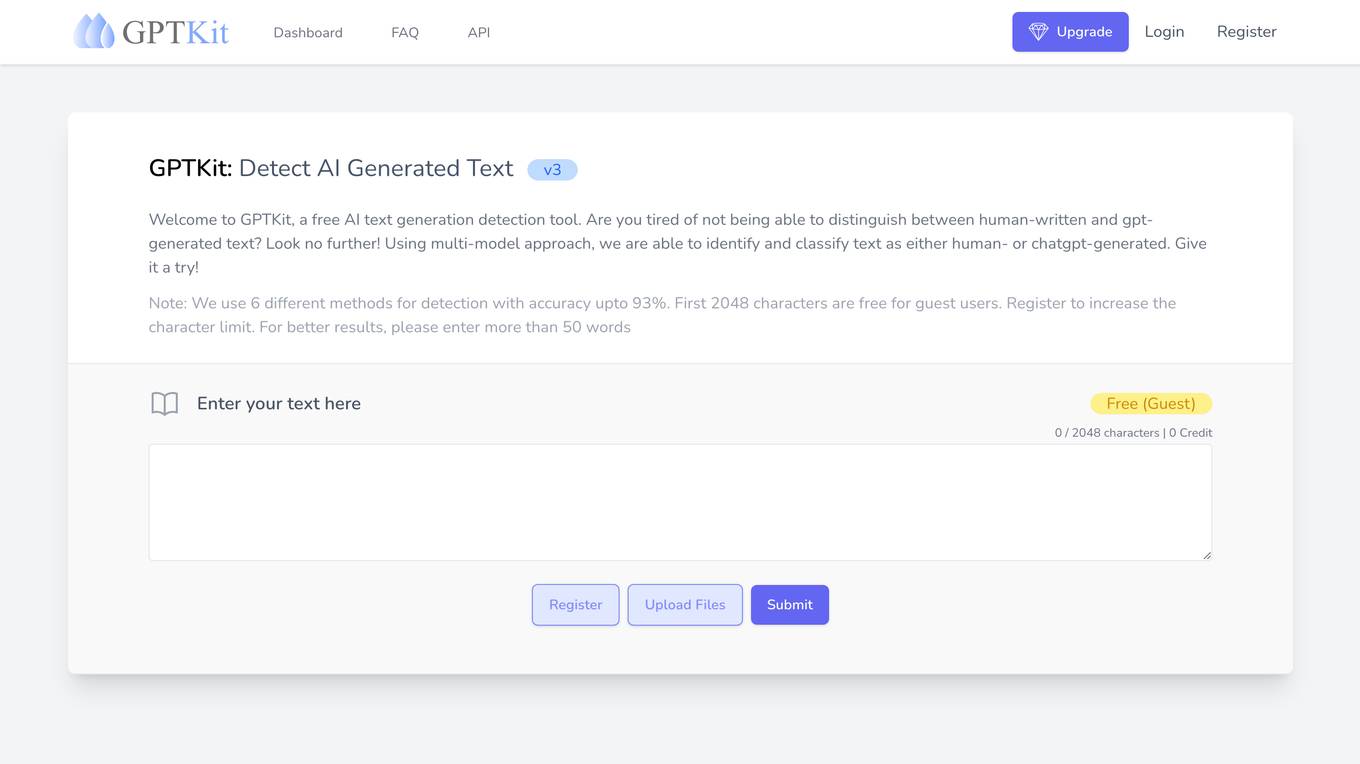
GPTKit
GPTKit is a free AI text generation detection tool that utilizes six different AI-based content detection techniques to identify and classify text as either human- or AI-generated. It provides reports on the authenticity and reality of the analyzed content, with an accuracy of approximately 93%. The first 2048 characters in every request are free, and users can register for free to get 2048 characters/request.
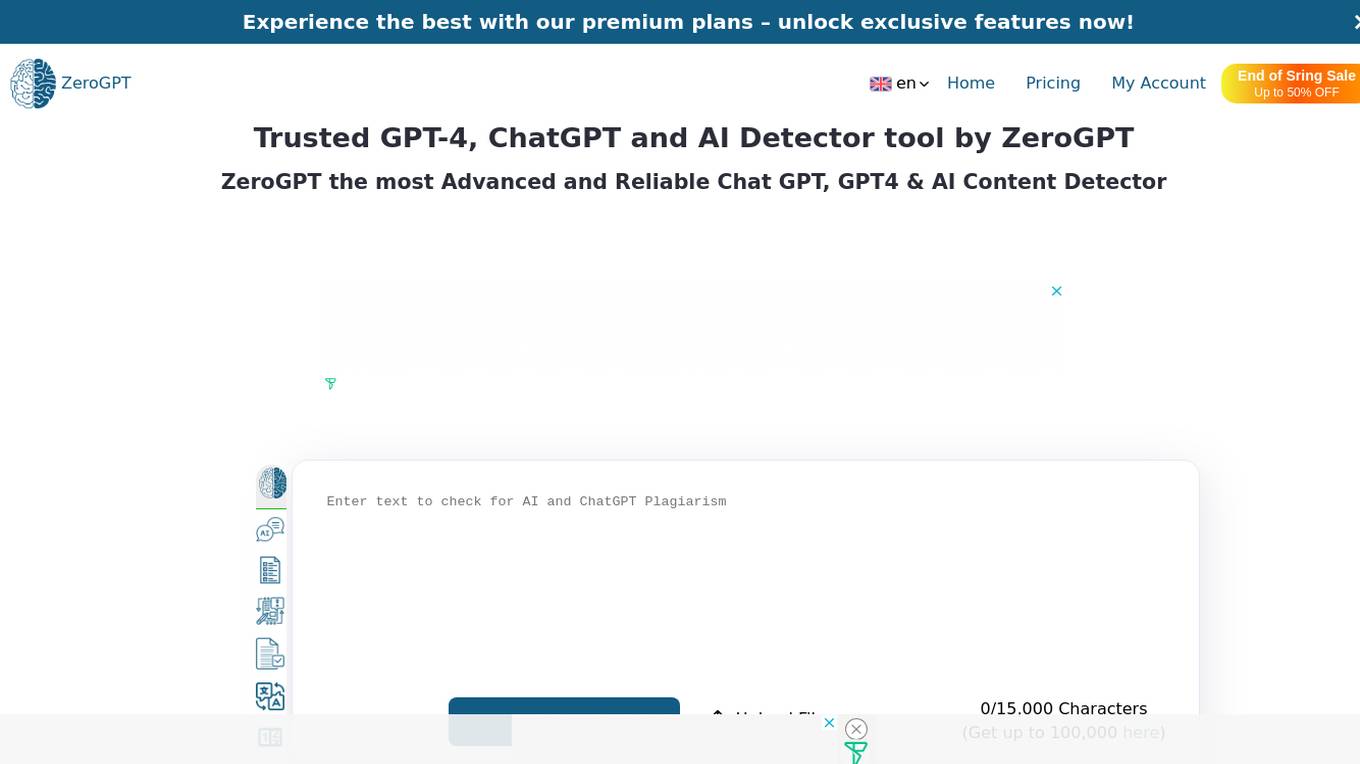
ZeroGPT
ZeroGPT is a trusted AI detector tool that specializes in detecting AI-generated content like ChatGPT, GPT4, and Gemini. It offers advanced features such as AI summarization, paraphrasing, grammar and spell checking, translation, word counting, and citation generation. The tool is designed to provide highly accurate results and supports multiple languages. ZeroGPT stands out for its highlighted sentences feature, batch file upload capability, high accuracy model, and automatically generated reports. It utilizes DeepAnalyse™ Technology, a multi-stage methodology that optimizes accuracy while minimizing false positives and negatives. Users can unlock premium features and API access to enhance their writing skills and integrate the tool on a large scale.
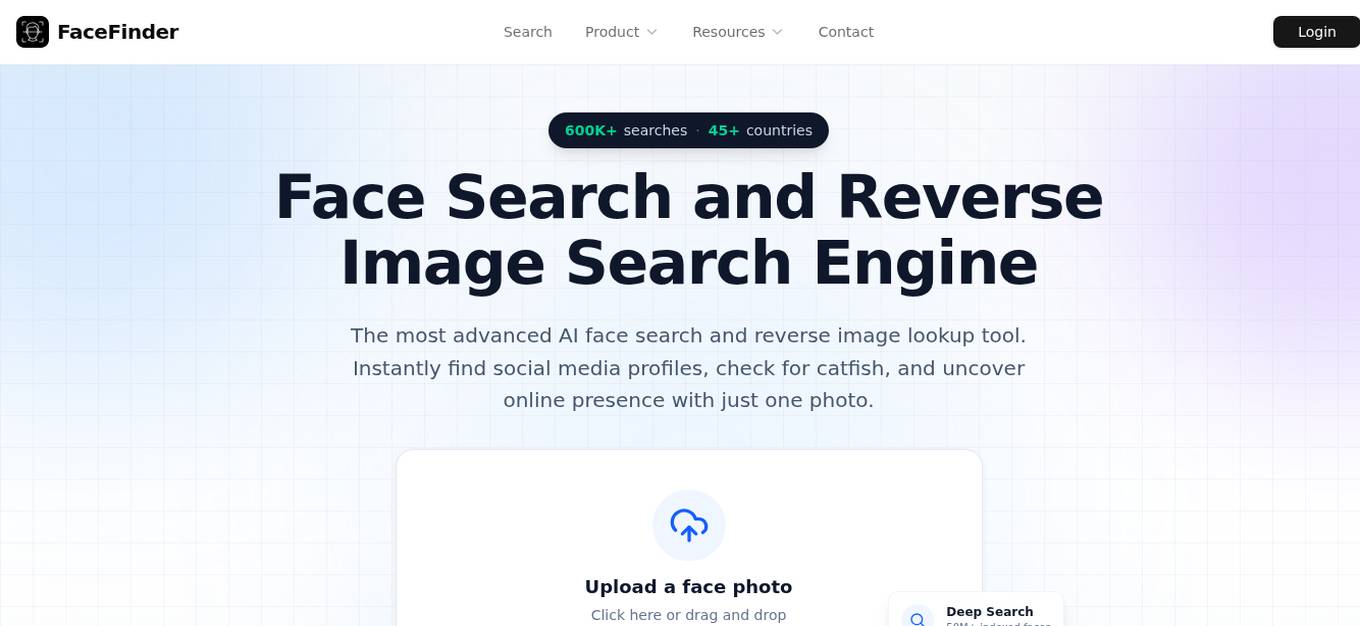
FaceFinder
FaceFinder is the #1 Reverse Face Search Engine, offering the most advanced AI face search and reverse image lookup tool. It allows users to instantly find social media profiles, check for catfish, and uncover online presence with just one photo. The application scans millions of websites, social media platforms, and public records to provide accurate facial recognition search results. FaceFinder prioritizes privacy by deleting uploaded photos immediately after the search completes, ensuring secure and anonymous face search experience.
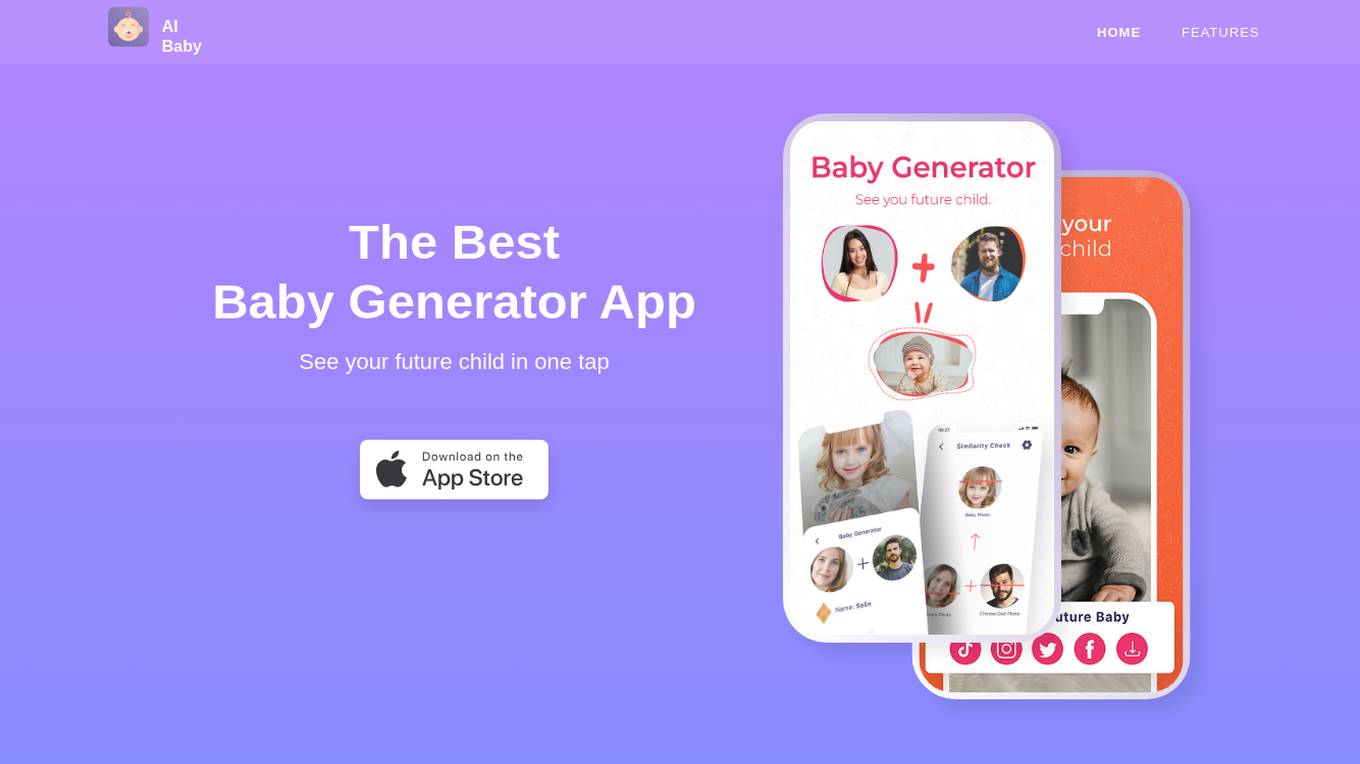
AI Baby Generator
AI Baby Generator is an AI application that allows users to predict the face of their future baby by analyzing their own features and those of their partner. The app uses advanced Artificial Intelligence technology to provide accurate results in just one tap. Users can upload photos of themselves and their partner to see which parent the baby resembles more. With a user-friendly interface, the app offers a fun and interactive way to visualize the potential appearance of a future child.
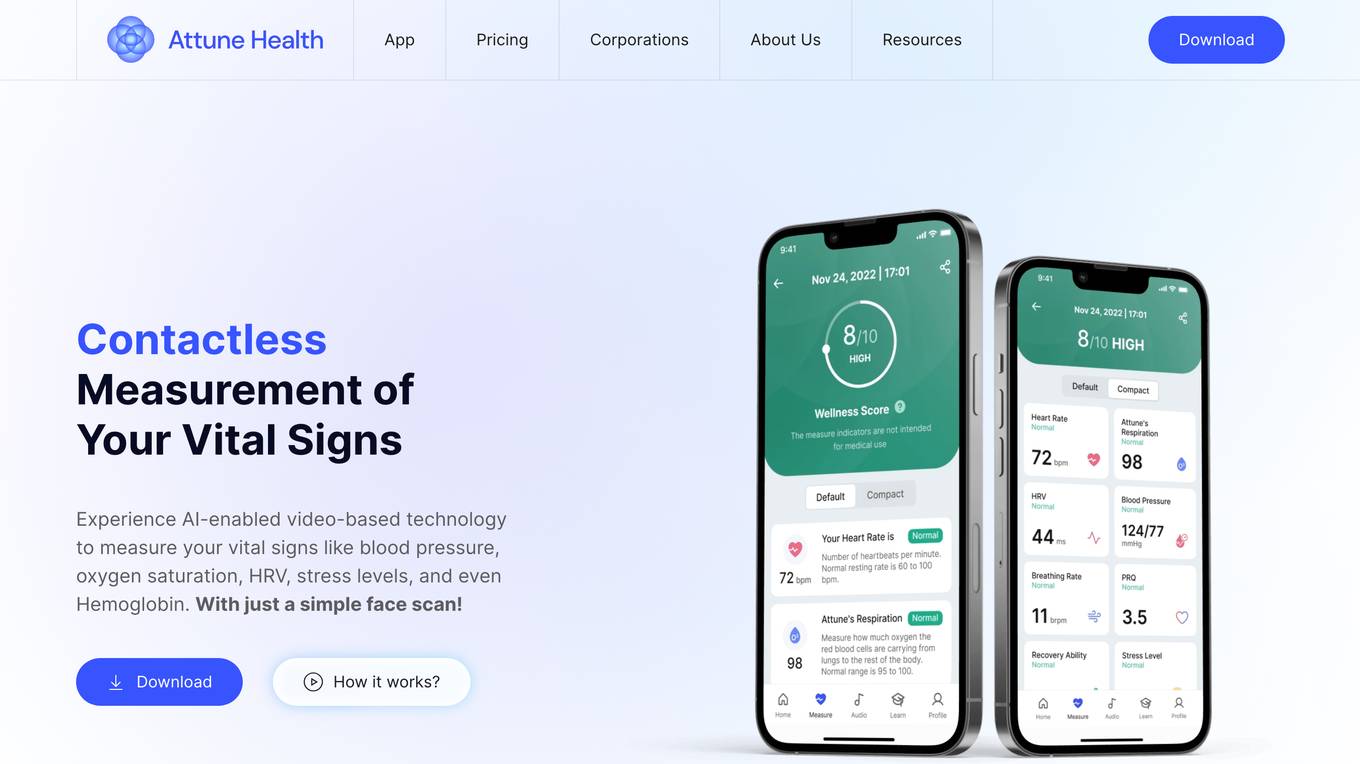
Attune Health Mobile App
Attune Health Mobile App is an AI-enabled application that offers contactless measurement of vital signs using video-based technology. Users can easily track and monitor their blood pressure, oxygen saturation, HRV, stress levels, and Hemoglobin through a simple face scan. The app provides accurate real-time measurements, empowering individuals to take control of their health and wellness. It also offers gender-specific results, privacy protection, and family value by allowing biomarker measurements for the whole family. Attune Health is a comprehensive solution for individuals and corporations seeking to improve health outcomes and productivity.

Maximus.guru
Maximus.guru is a website that provides information about a security certificate error related to the domain maximus.guru. The site warns users about potential privacy risks and advises on actions to take in response to the security certificate expiration. It offers insights into the certificate details, expiration date, and potential security threats that users may face. The website aims to educate users on security best practices and how to address security issues related to website connections.
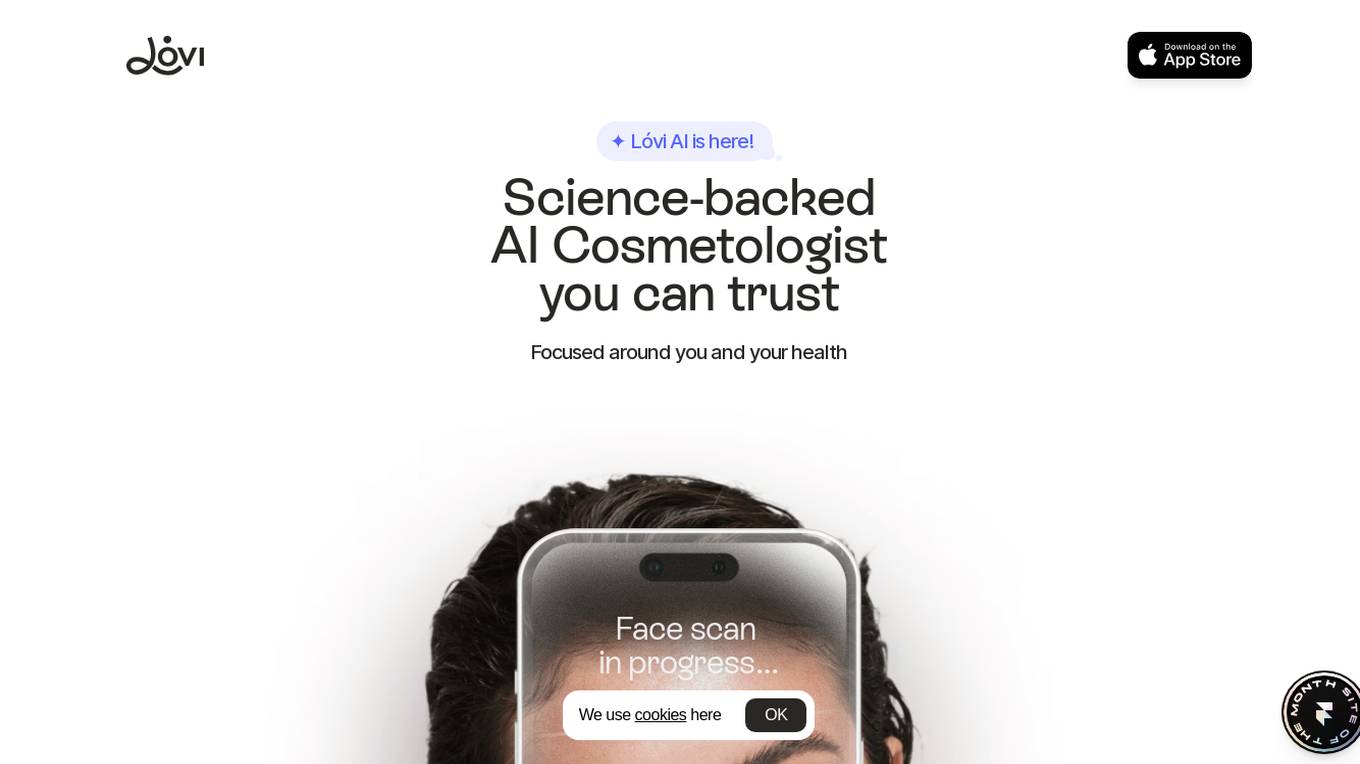
Lovi
Lovi is a comprehensive AI-driven skin care application that offers science-backed cosmetology services. It provides personalized skin health analysis, helps users set skincare goals, tracks changes with face scanning technology, and ensures cosmetic safety. With a focus on user health and well-being, Lovi offers expert skincare guidance, product recommendations, and answers to skincare-related questions. The application is designed to cater to individual skin needs, offering a unique approach to maintaining a healthy lifestyle through self-care.
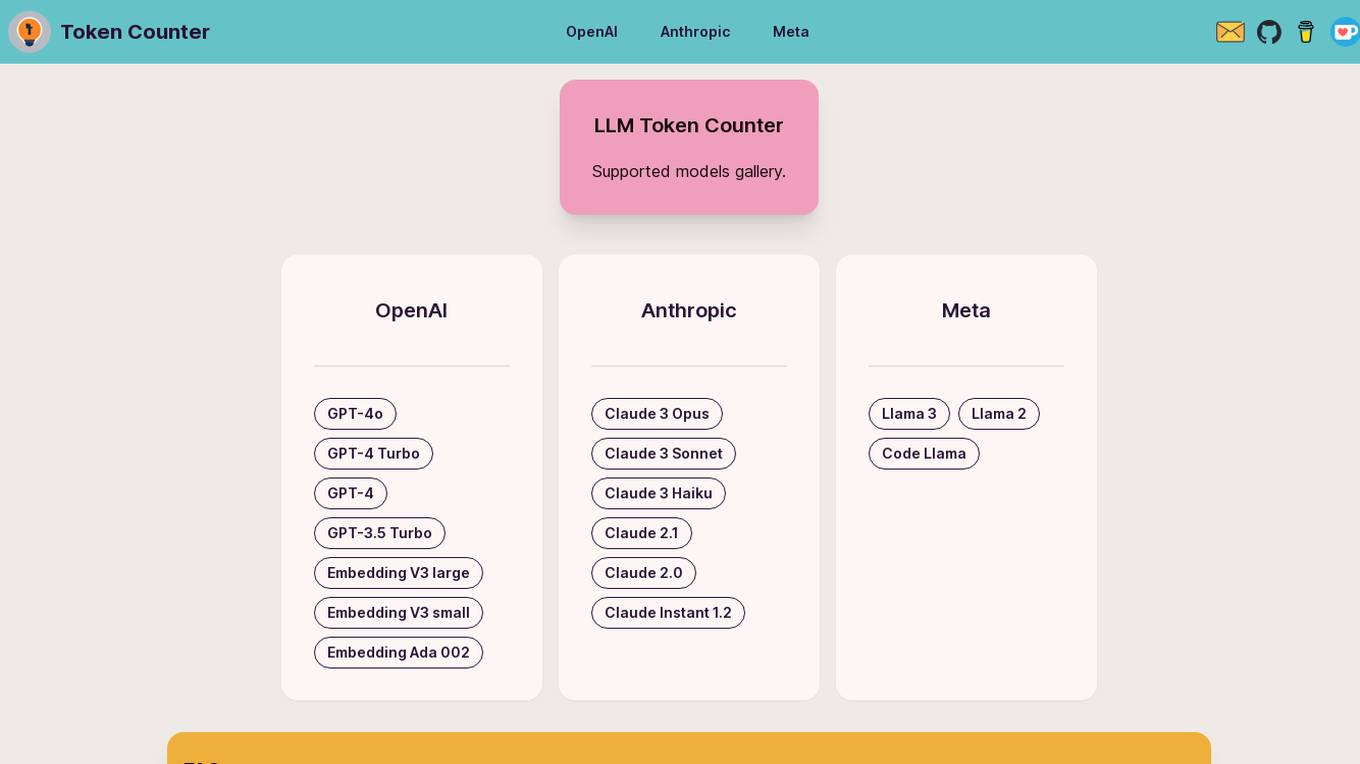
LLM Token Counter
The LLM Token Counter is a sophisticated tool designed to help users effectively manage token limits for various Language Models (LLMs) like GPT-3.5, GPT-4, Claude-3, Llama-3, and more. It utilizes Transformers.js, a JavaScript implementation of the Hugging Face Transformers library, to calculate token counts client-side. The tool ensures data privacy by not transmitting prompts to external servers.
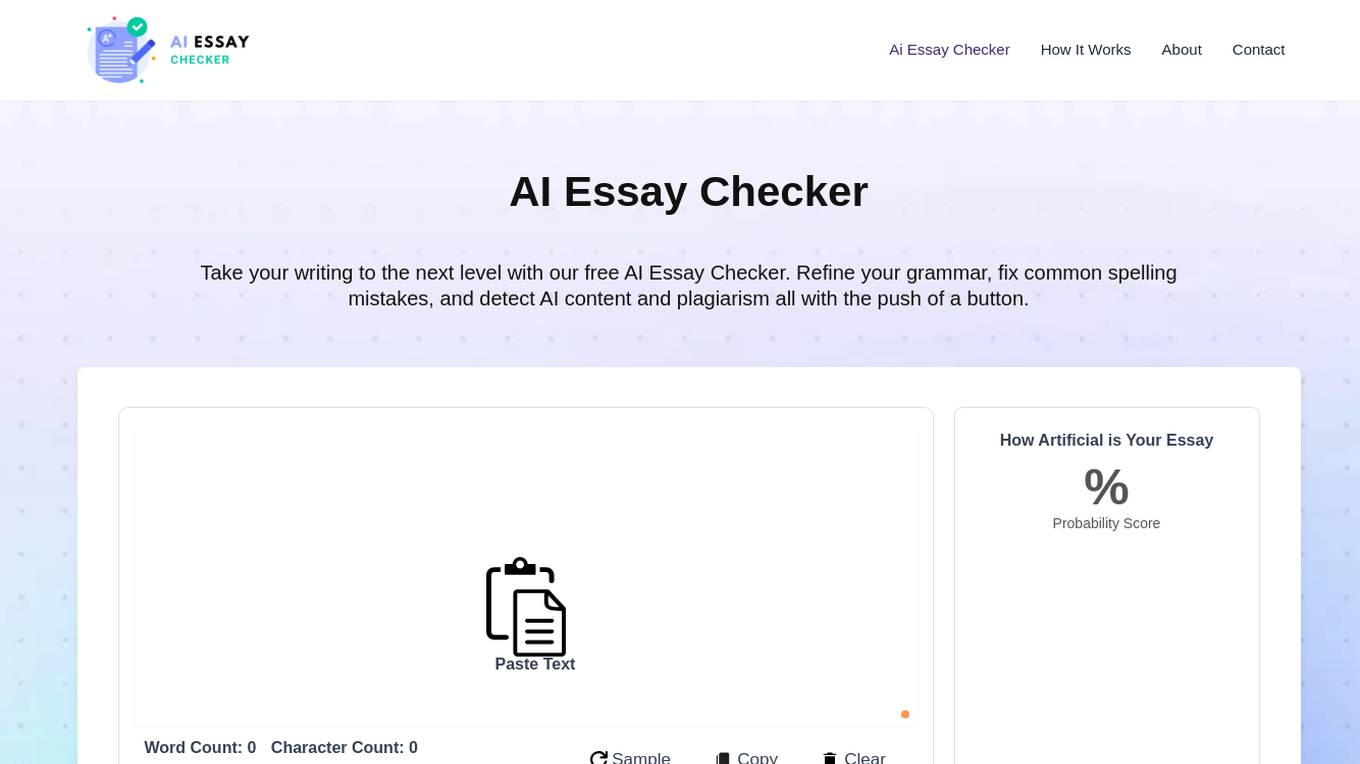
Essay Check
Essay Check is a free AI-powered tool that helps students, teachers, content creators, SEO specialists, and legal experts refine their writing, detect plagiarism, and identify AI-generated content. With its user-friendly interface and advanced algorithms, Essay Check analyzes text to identify grammatical errors, spelling mistakes, instances of plagiarism, and the likelihood that content was written using AI. The tool provides detailed feedback and suggestions to help users improve their writing and ensure its originality and authenticity.
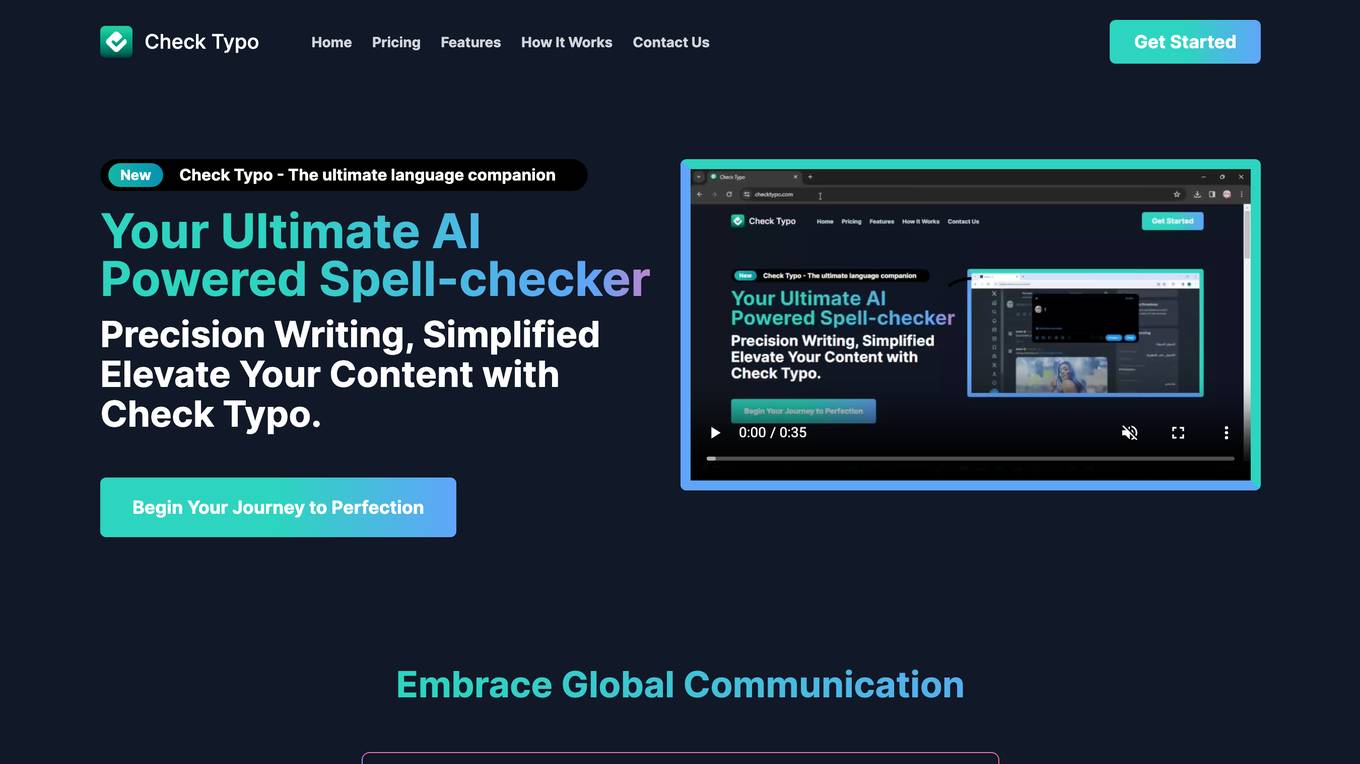
Check Typo
Check Typo is an AI-powered spell-checker tool designed to assist users in eliminating typos and grammatical errors from their writing. It seamlessly integrates within various websites, supports multiple languages, and preserves the original text's style and tone. Ideal for students, professionals, and writers, Check Typo enhances the writing experience with AI-driven precision, making it perfect for error-free emails, professional networking on platforms like LinkedIn, and enhancing social media posts across different platforms.

Copyright Check AI
Copyright Check AI is a service that helps protect brands from legal disputes related to copyright violations on social media. The software automatically detects copyright infringements on social profiles, reducing the risk of costly legal action. It is used by Heads of Marketing and In-House Counsel at top brands to avoid lawsuits and potential damages. The service offers a done-for-you audit to highlight violations, deliver reports, and provide ongoing monitoring to ensure brand protection.
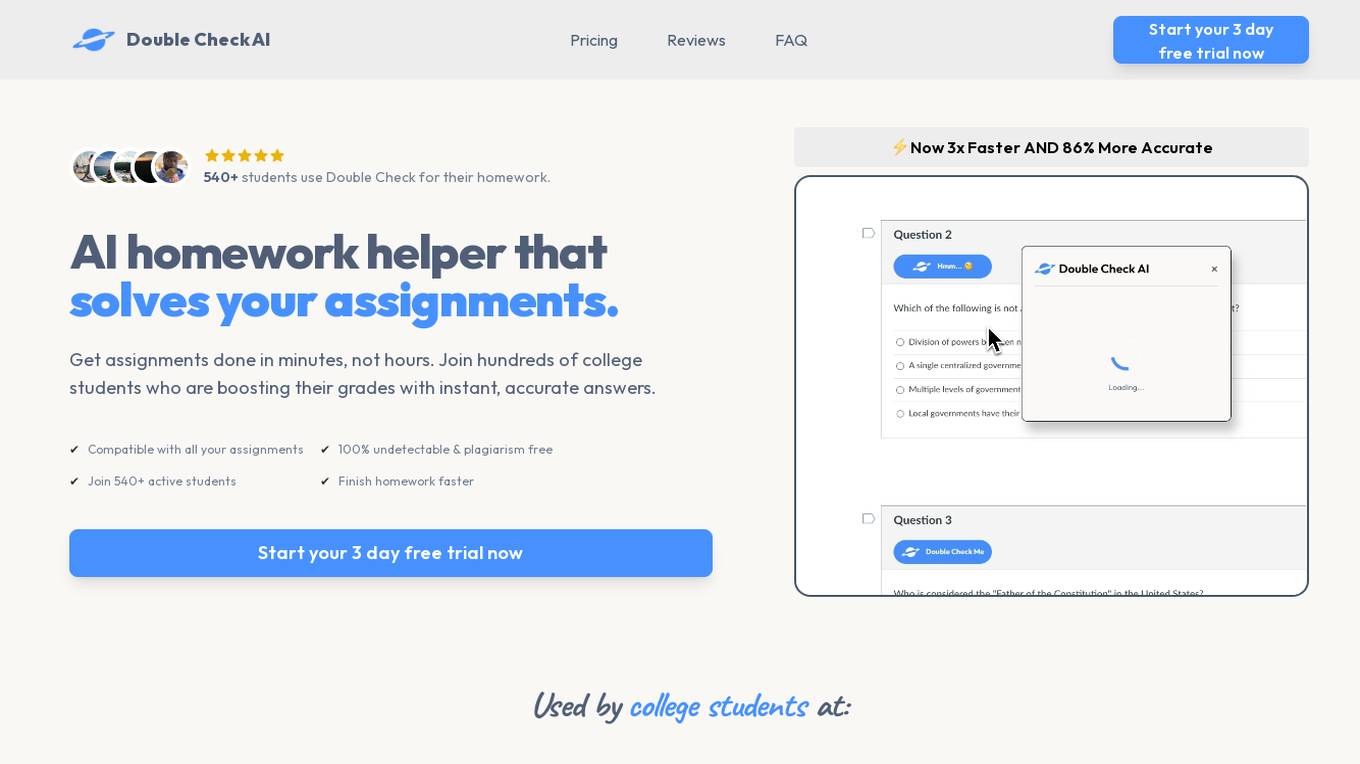
Double Check AI
Double Check AI is an AI homework helper designed to assist college students in completing their assignments quickly and accurately. It offers instant answers, detailed explanations, and advanced recognition capabilities for solving complex problems. The tool is undetectable and plagiarism-free, making it a valuable resource for students looking to boost their grades and save time on homework.
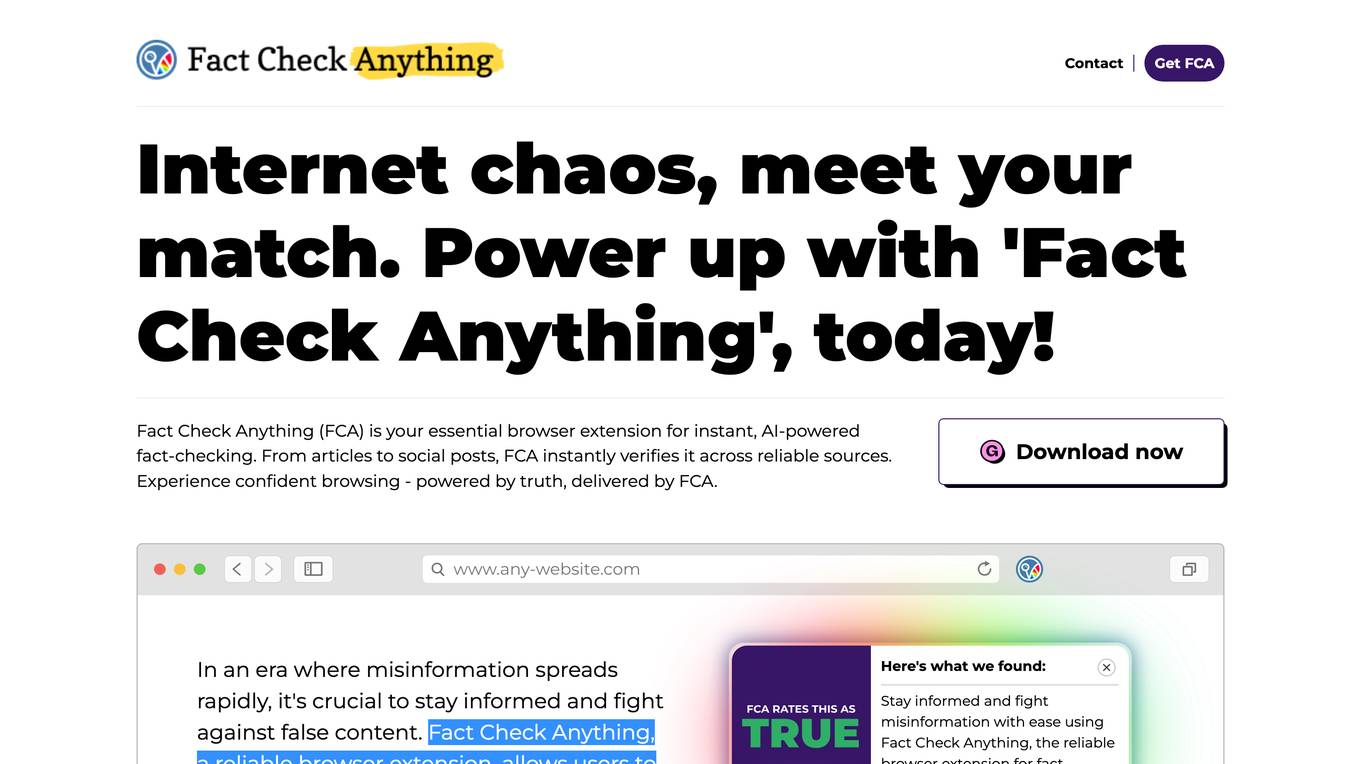
Fact Check Anything
Fact Check Anything (FCA) is a browser extension that allows users to fact-check information on the internet. It uses AI to verify statements and provide users with reliable sources. FCA is available for all browsers using the Chromium engine on Windows or MacOS. It is easy to use and can be used on any website. FCA is a valuable tool for anyone who wants to stay informed and fight against misinformation.

Rizz Check
Rizz Check is a swipe game where users can befriend AI celebrities and ask them on dates. The game is built with Rizz, a library created by boredhead00.
0 - Open Source AI Tools
20 - OpenAI Gpts
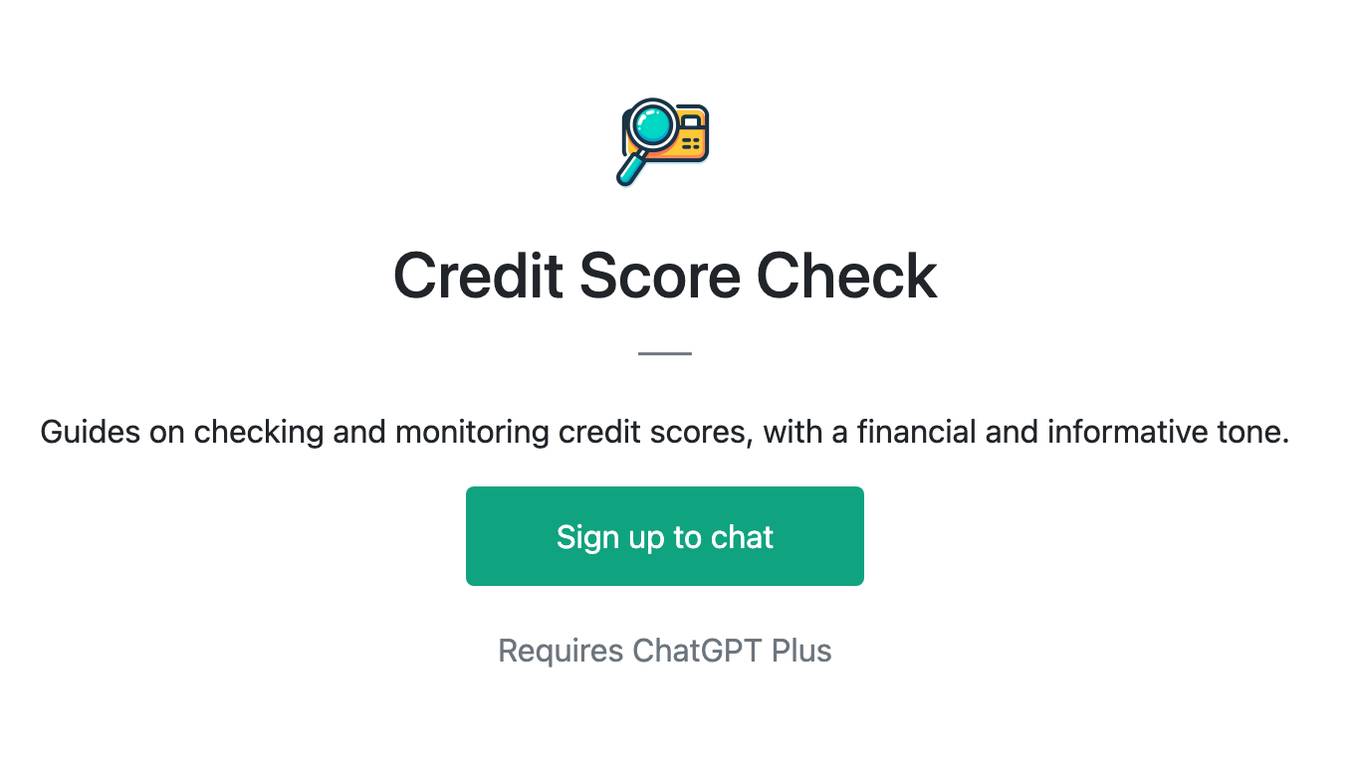
Credit Score Check
Guides on checking and monitoring credit scores, with a financial and informative tone.
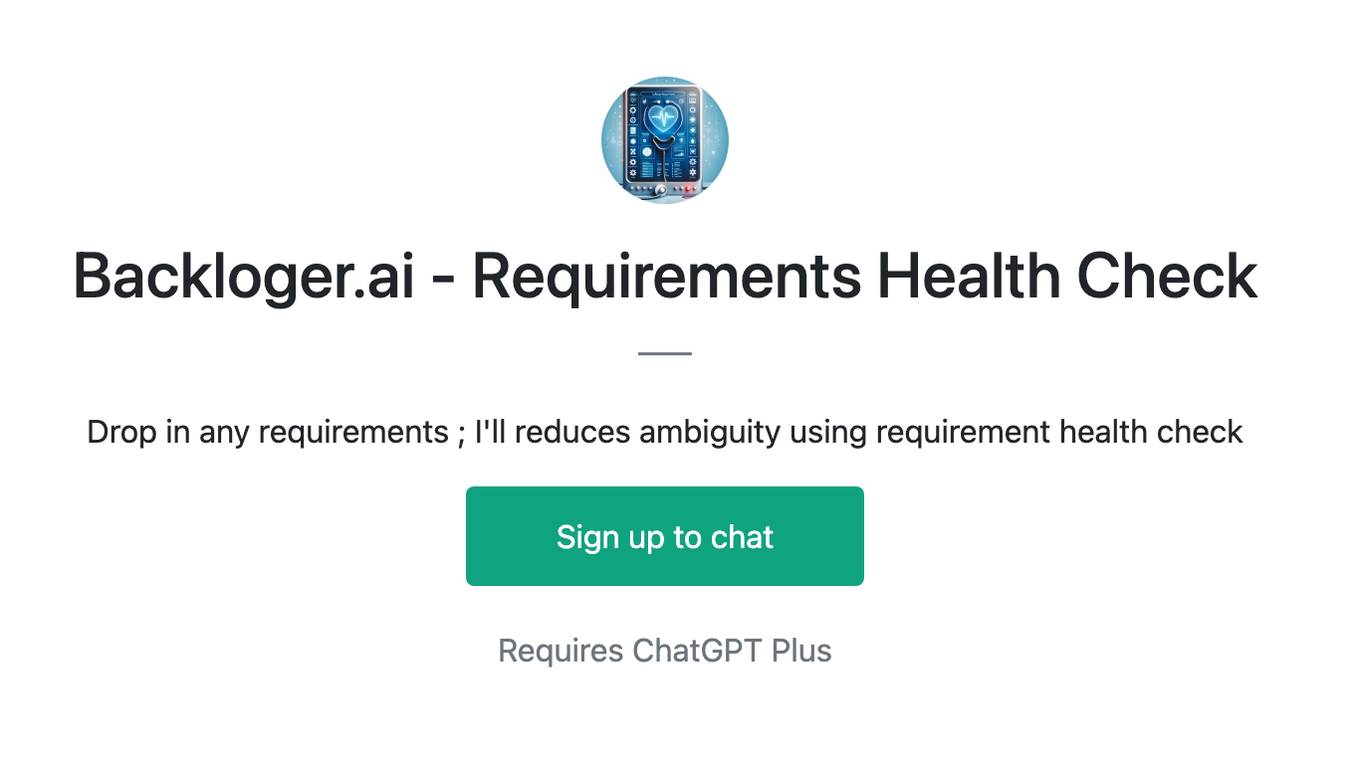
Backloger.ai - Requirements Health Check
Drop in any requirements ; I'll reduces ambiguity using requirement health check

Website Worth Calculator - Check Website Value
Calculate website worth by analyzing monthly revenue, using industry-standard valuation methods to provide approximate, informative value estimates.
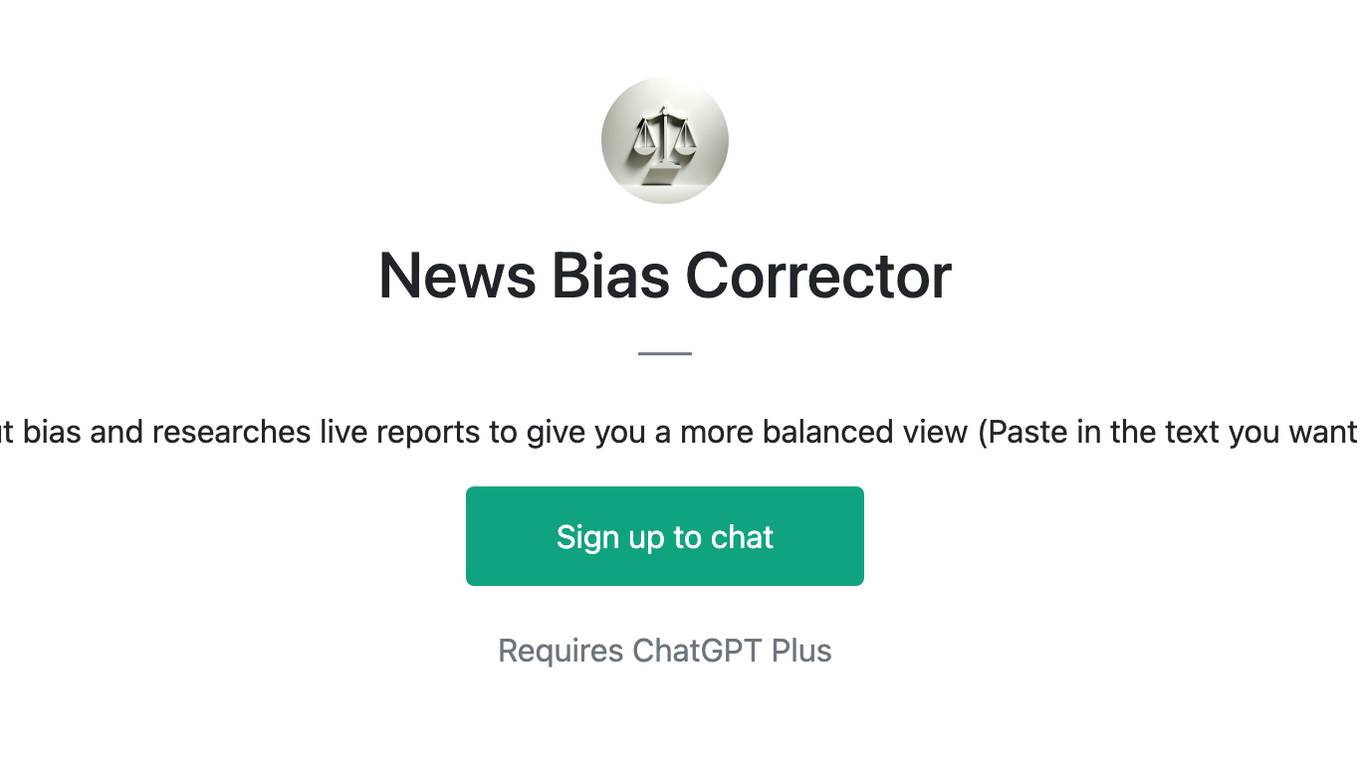
News Bias Corrector
Balances out bias and researches live reports to give you a more balanced view (Paste in the text you want to check)

Service Rater
Helps check and provide feedback on service providers like contractors and plumbers.
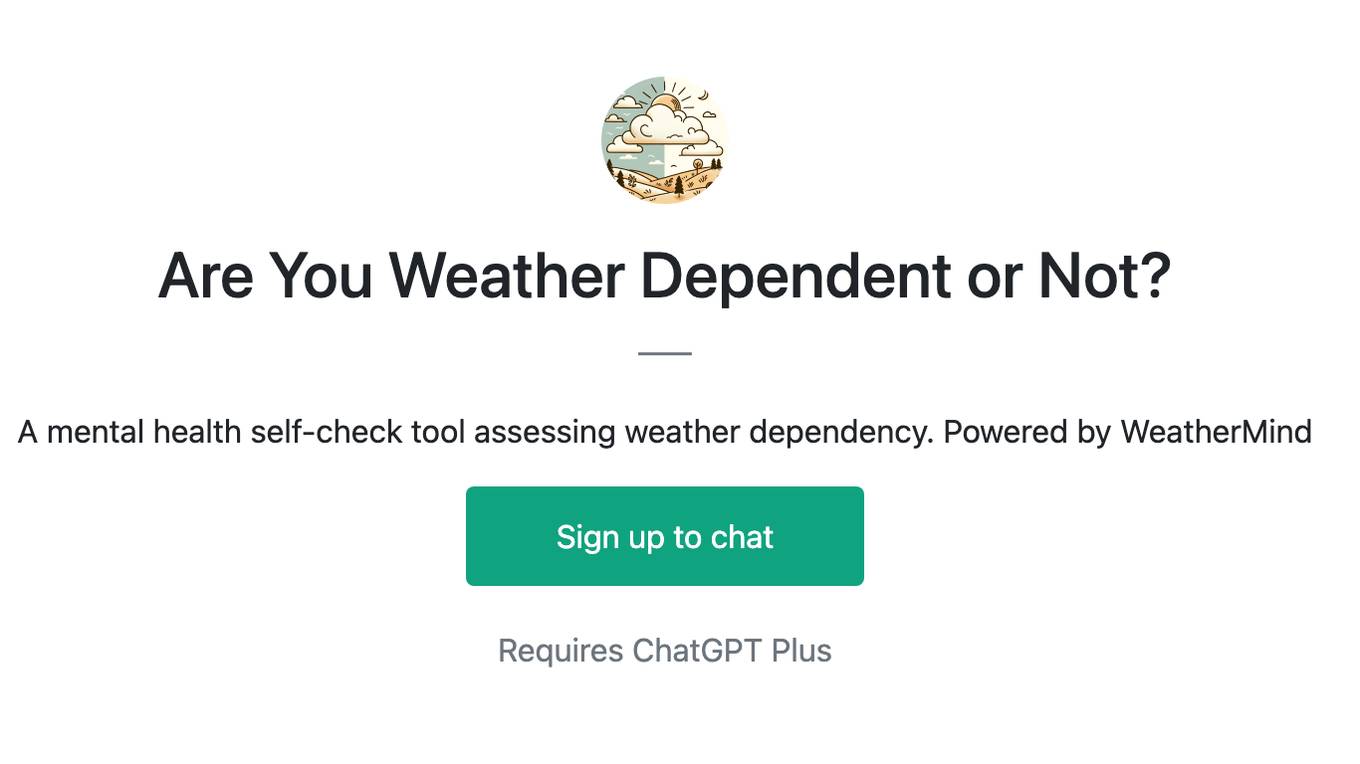
Are You Weather Dependent or Not?
A mental health self-check tool assessing weather dependency. Powered by WeatherMind
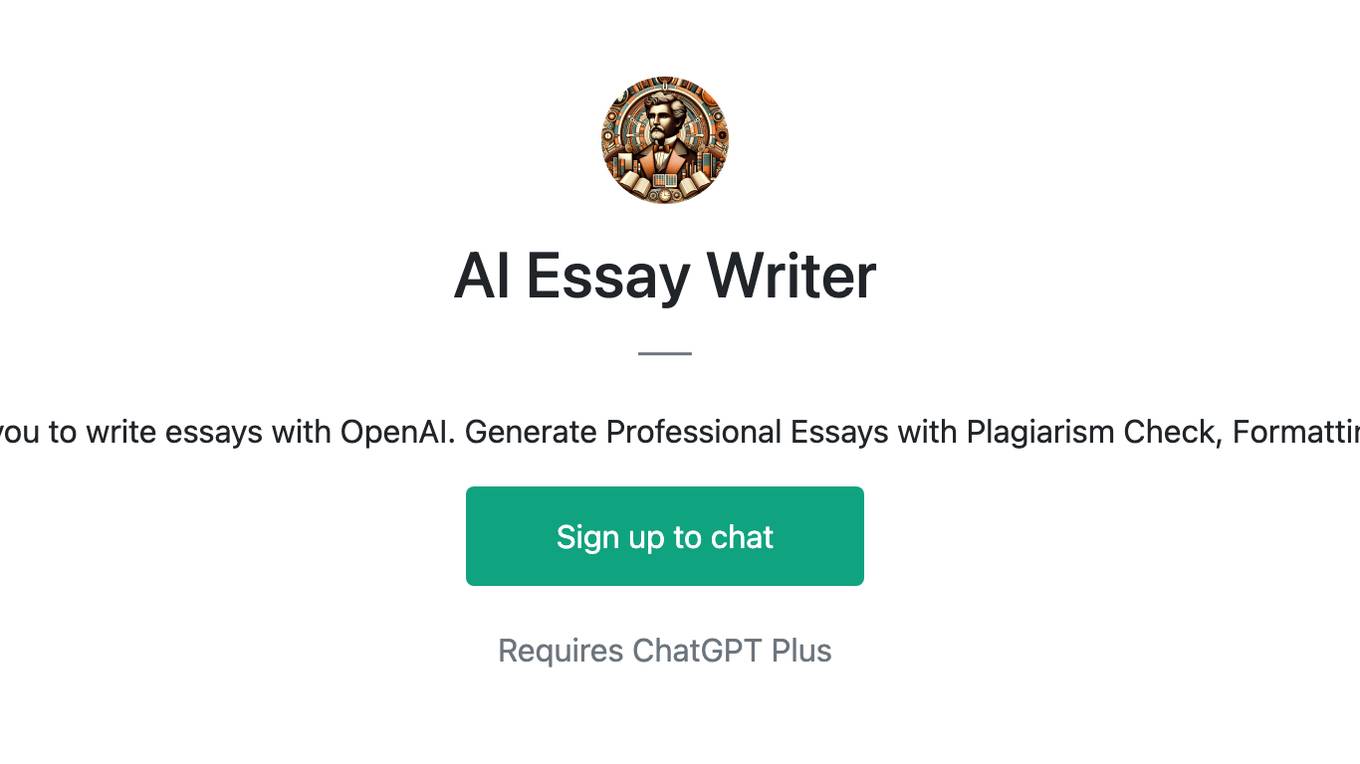
AI Essay Writer
ChatGPT Essay Writer helps you to write essays with OpenAI. Generate Professional Essays with Plagiarism Check, Formatting, Cost Estimation & More.
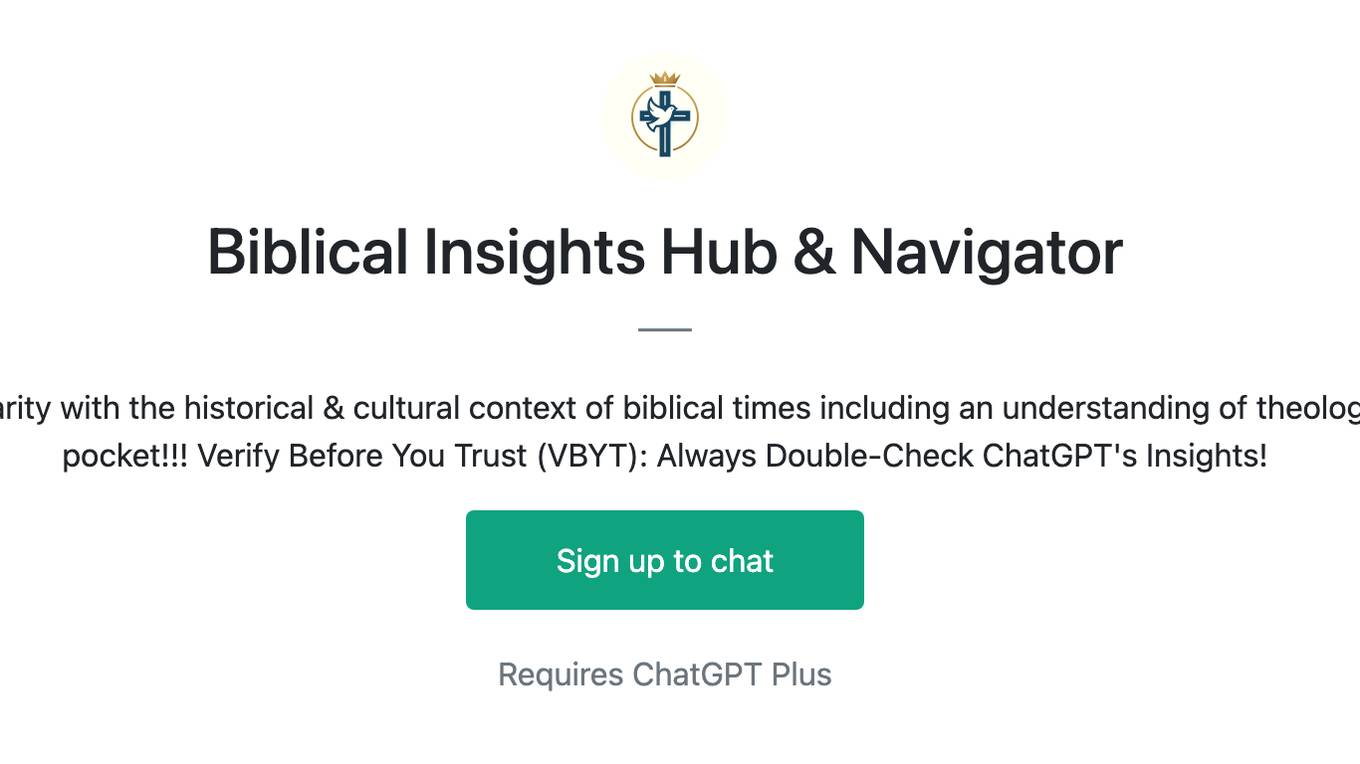
Biblical Insights Hub & Navigator
Provides in-depth insights based on familiarity with the historical & cultural context of biblical times including an understanding of theological concepts. It's a Bible Scholar in your pocket!!! Verify Before You Trust (VBYT): Always Double-Check ChatGPT's Insights!
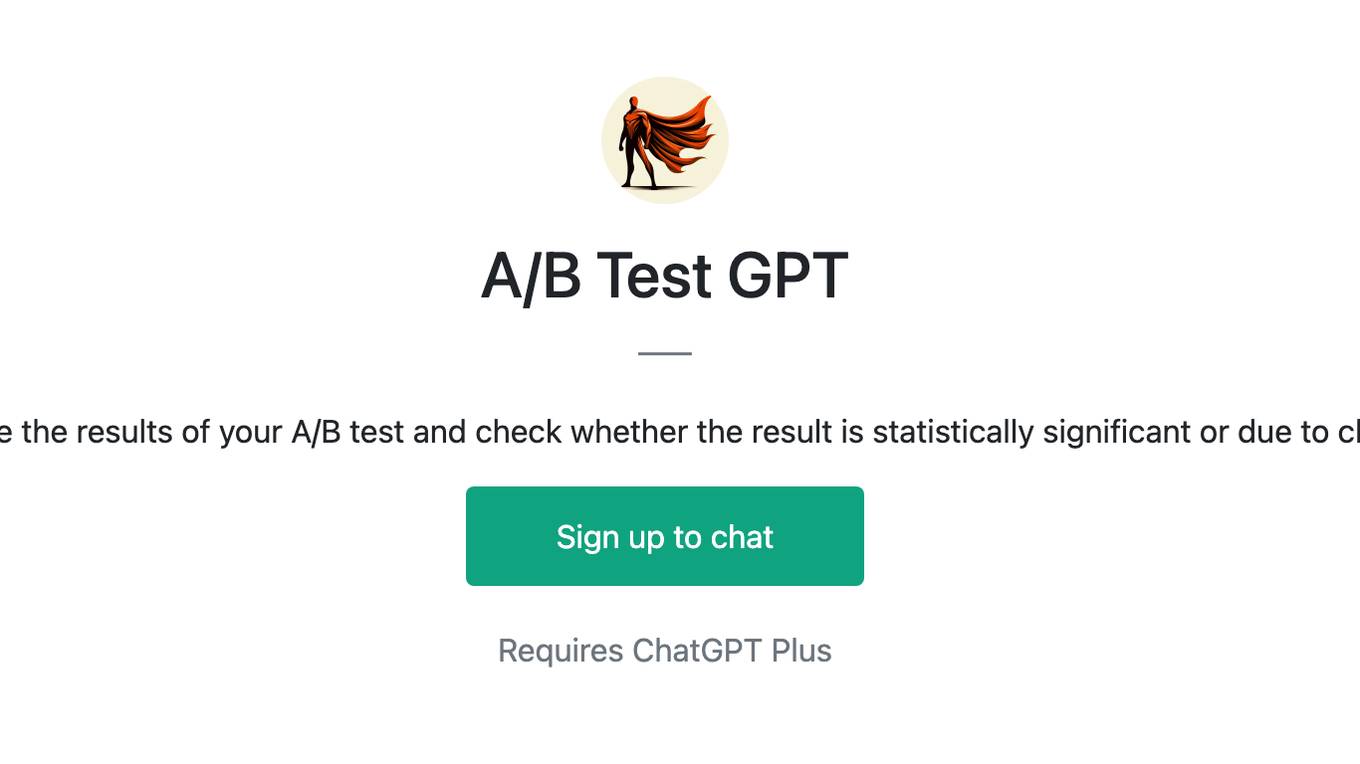
A/B Test GPT
Calculate the results of your A/B test and check whether the result is statistically significant or due to chance.
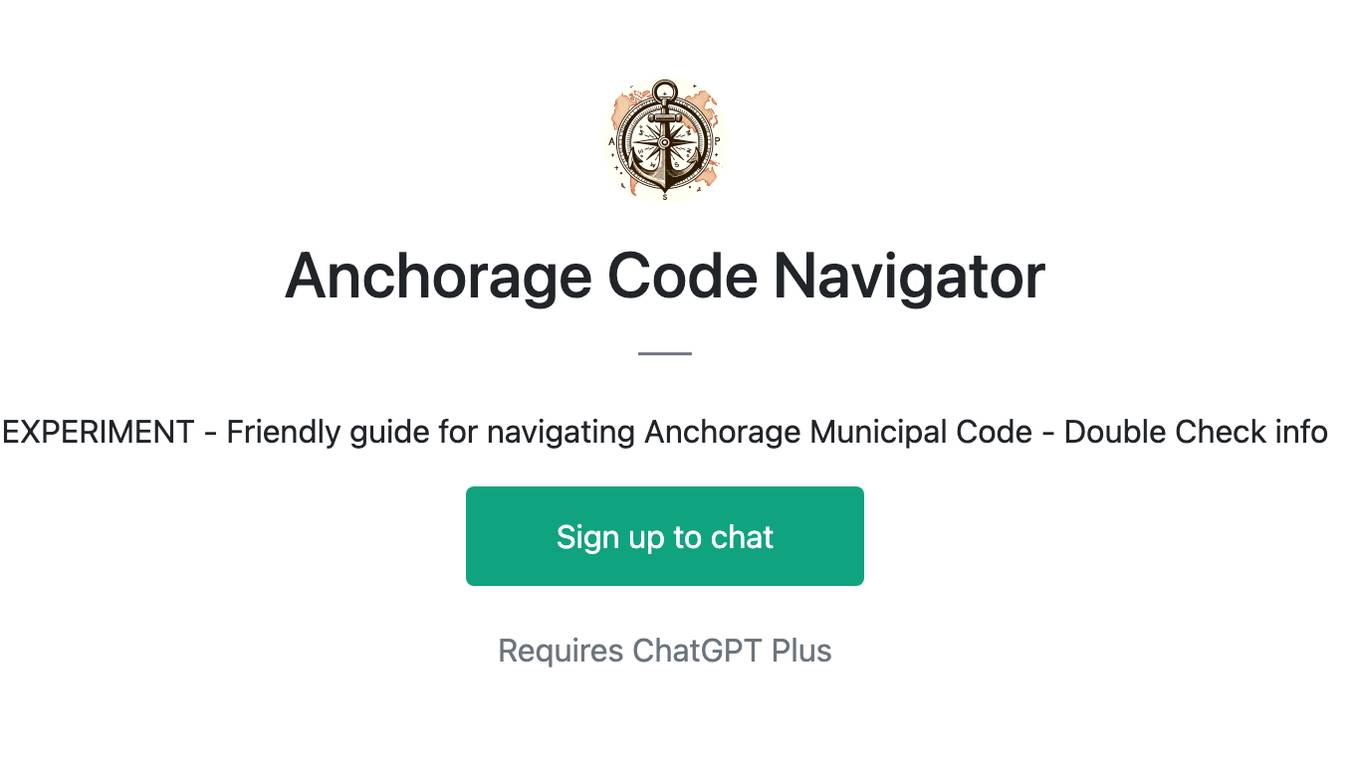
Anchorage Code Navigator
EXPERIMENT - Friendly guide for navigating Anchorage Municipal Code - Double Check info
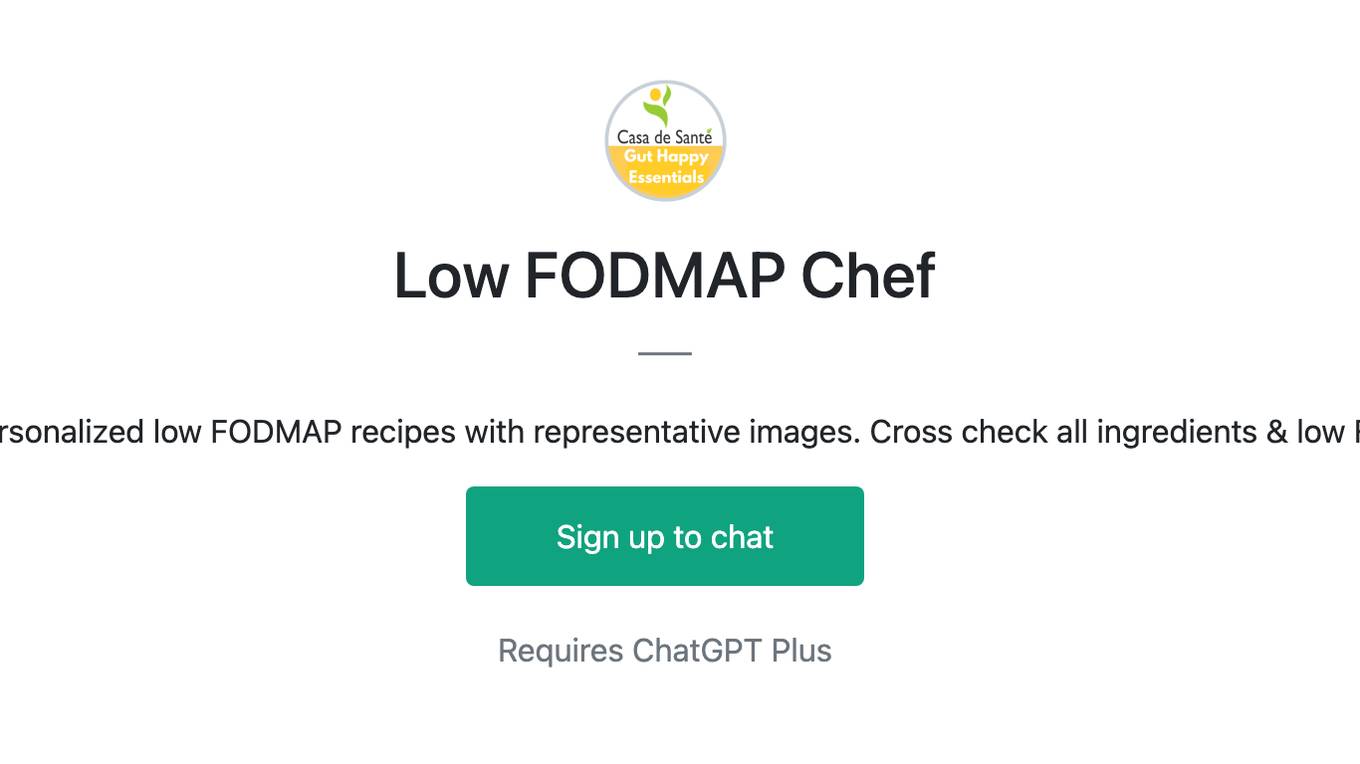
Low FODMAP Chef
Expert in crafting personalized low FODMAP recipes with representative images. Cross check all ingredients & low FODMAP servings.
Ai PDF is a GPT (uses the popular Ai PDF plugin) that allows you to chat and ask questions of your PDF documents and have it explained to you by ChatGPT. We also include page references to help you fact-check all answers.
